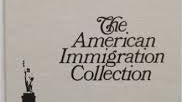The UMass Lowell Saab-Pedroso Center for Portuguese Culture and Research and Departments of Sociology and Political Science announce a lecture, “Revisiting Donald Taft’s Two Portuguese Communities in New England: Academic Sociology, the Racialization of Labor, and the 1924 Immigration Act,” by Dr. Cristiana Bastos of the Institute of Social Sciences at the University of Lisbon.
Donald Taft’s 1923 book Two Portuguese Communities in New England caused much anger and protest among New England’s Portuguese communities at the time. This lecture will discuss how and why an obscure academic dissertation became infamous to the point of gathering thousands of people in public demonstrations that demanded a scientific response to the author’s claims. Taft had investigated the possible social causes for the high rates of infant mortality in Fall River, Massachusetts, and Portsmouth, Rhode Island. He used state-of-the-art quantitative and qualitative research methods and outlined a number of possible social, cultural, economic and environmental variables related to the poor health indicator. And yet his introduction and conclusion indulged in racialist comments about the Portuguese, serving nutritious social science wrapped in stale racist prejudice. The clash between author and communities helps us access a complex historical moment when the early efforts of promoting the scientific study of society coexisted with the pseudoscience of race in a tense political context regarding immigration.
Saab-Pedroso Center for Portuguese Culture and Research
University of Massachusetts Lowell




